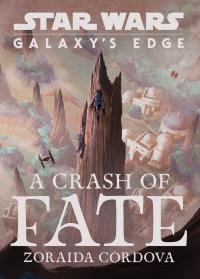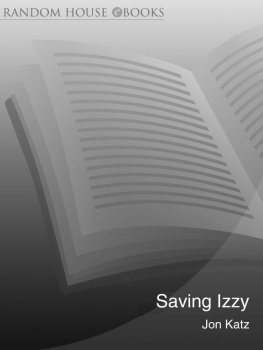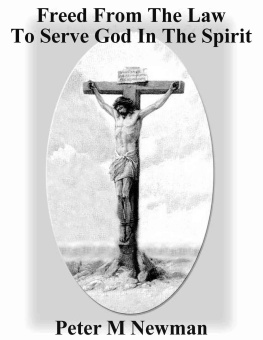Prologue
Reaching for the Stars
Weve never been able to say exactly where we think Canwest will wind up. If we did, people would put us in a straitjacket.
Izzy Asper, on his companys future prospects
I t was October 1987, and Id been selected to go on this Canadian military mission, really a NATO war game, recalled Israel Asper, the tax lawyer, Liberal politician, merchant banker and television wizard. To fill the spare hours he didnt have, he had agreed to serve as an honorary lieutenant colonel in the Canadian Army Reserves.
Now he was in Lahr, West Germany, on the Cold Wars front lines, engaged in a realistic Panzer tank exercise. The Americans and Canadians were on the same side, ranked against the Brits and the Germans, while the French were somewhere else. The North American contingent had these guys surrounded and the jaws of the pincer movement were about to close. We were going to fry those guys and the war would be over, Asper recalled. It had to be over that day. I had important appointments back in Winnipeg.
Its now five in the morning, a great time for me, and we have to get up because were going to rendezvous with the Americans in our final movement, our final strategy. Anyway, we pull up and get our Canadian Army breakfast. It is gruel, straight out of Oliver Twist. Porridge. Then the Americans pull up and theyre three or four hundred yards away. The McDonalds armoured truck is there and the Wendys armoured car is there and out come these juicy cheeseburgers. It was just brutal.
Our general is junior to the U.S. commanding officer, so we have to go to him. We arrive at his tent and our guy is all spiffied up, ready for a big battle, while the American has no tie, is unshaven and is stomping around his tent, cursing.
Our general comes to attention with a loud stomp of his right boot and says, Sah! Reporting for duty! Sir!
The American general interrupts him and yells, What the fuck are you talking about? This is over. Havent you heard the news? This war game is over. We are returning to base right now. The Canadian general repeats his parrot-like bleat, Sah? and continues standing there at stalagmite-like attention, with an uncomprehending look on his face.
Dont you know, man? asks the American warrior, deciding to let loose the ten-ton gorilla into the room. THE DOW HAS DROPPED 508 POINTS! This produces no visible effect. The Canadian general vaguely replies, Yes, Sah!still on his flight plan to nowhere.
At this point, the Yankee warlock softens a bit. Dont you know that the crash is on? The Russians are going to attack, and World War III is going to begin. Weve got to get back to base. THE DOW IS CRASHING!
Sir, ventures our befuddled general, whats the Dow?
It was not Canadas finest hour.
Colonel Asper was meanwhile trying to find a goddamn phone so he could pull two of his stock issues due to hit the market that day. Every communications instrument had been commandeered by American army officers urgently whispering to their brokers. Finally the Yankee general decided to resume the war games, clamped a two-star helmet on his head and barked, Okay, lets go and get the buggers!
For Asper, the mundane incident remained a vivid memory because it was so bizarre, so totally outside his daily experience. Youve got to appreciate the absurdities in life, he reminded himself. Otherwise everything is much too painful.
That thought ought to have been mounted in petit point above his desk, because his professional life was a constant struggle not to allow the preposterous to obliterate the desirable. So many of his impossible dreams remained just that, succumbing to the tight-ass realities of uptight bankers, sleepwalking broadcast regulation commissioners, and the rigor mortis Bay Street boys who hadnt taken a risk since they managed to survive puberty. This was the trio of spoilers who were not prepared to grant Izzy the free-range operational code that his outsize ambitions demanded.
Only family members were aware of Izzys interstellar objectives, but during the 1990s, his aspirations knew no bounds. He bid for the American network CBS; attempted to take over his chief Canadian rival, CTV; nearly won ownership of Scotlands dominant TV operation (the one that Lord Thomson described as being just like having a licence to print your own money); came close to acquiring a transcontinental U.S. religious TV network that reached most of urban America; seriously negotiated for the television operations of Bertelsmann, the huge German multimedia conglomerate; and took a shot at owning Air Canada, the sports network TSN and Royal Trust. None of these propositions materialized, but they legitimized the inscription on his official coat of armsReach for the Starsand accurately reflected the limits of his ambitions. There were none. When asked how he visualized himself as a media baron, he primly replied, It doesnt bring you any new friendsit only brings you a better class of enemies.
He became a billionaire several times over by doing real deals that turned him into the countrys most successfuland most controversialmedia mogul. Asper, whose first job was scraping the gum off the bottoms of the seats in his fathers theatre in tiny Minnedosa, Manitoba, became a metaphor for power wielded and riches gained. But in the arena that was his highest personal priorityhis ability to influence national policieshis influence remained marginal, more the cause of trouble than the source of change.
Back in 1969, having just survived a potentially fatal case of infectious hepatitis, Israel Asper, then thirty-eight, spent many an evening at his cottage on Falcon Lake jotting down his personal letter of intent. The ambitious future trajectory, for family eyes only, set out his intentions:
- To develop a country (St. Lucia)
- To write a Broadway musical
- To start a bank in Israel and move there
- To write a novel
- To re-study the piano
- To work as a journalist
- To launch a chartered bank in Western Canada
When Asper died at seventy-one in the autumn of 2003, his life tragically ended by a fatal heart attack, the list remained untouched. But during the interval he had far surpassed the scope and magnitude of his stated aspirations. The realities he had achieved were exponentially more impressive, but they led him into unaccustomed notoriety. He inadvertently became a polarizing presence on the national scene: worshipped by his friends and followers, the object of fear and loathing among his critics and disillusioned journalists. He was born to make trouble, and he did. If you phoned Izzy and talked about the weather, recalled his legal beagle, Yale Lerner, there was bound to be some Palestinian plot to change Canadas climate. There was always something, and he would always embellish it.
Israel Harold Asper led a compelling life.
He was a singular man whose defining brand was his refusal to distinguish the possible from the impossible. Early on, he evolved an impressive trio of characteristics that never varied but grew more intense with age: his single-mindedness, which defied gravity; his brass-plated determination to wrestle obstacles, real and imagined, into oblivion; his inexhaustible fund of self-deprecating humour, which made the other two traits bearable. He was the butt of his own best jokes. One morning in 1998, he phoned me to report that he had just had a pacemaker implanted into his upper chest to tame his runaway heart. When I made the appropriate sympathetic noises, he cut me off. No, no, its great, he enthused. I can now broadcast as a stand-alone transmitterand besides, the damn thing opens my garage door!







